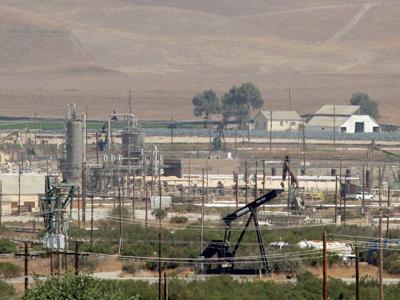Environmental Law Again Front-and-Center at California Supreme Court
Local Government’s Authority to Limit Oil & Gas Development To Be Argued Before Justices

For the first two decades of this century, and under the able leadership of former Chief Justices Ronald George and Tani Cantil-Sakauye, the California Supreme Court was quite active in interpreting and shaping California environmental law. That trend had abated in the last few years–coincidentally or not during the height of the COVID epidemic–with only a couple of relatively minor environmental law decisions being issued by the Supreme Court.
Well, break’s over. The California Supreme Court is back in the environmental law business.
Later this month the justices will hear arguments in Chevron U.S.A. v. County of Monterey–a major case involving the authority of California local governments to limit oil and gas development within their borders.
In 2016 Monterey County voters passed Measure Z, a citizen initiative intended to bar the drilling of new oil and gas wells in the county and ban the use of fracking technology for existing wells in Monterey County. The oil and gas industry, led by Chevron U.S.A., promptly sued to invalidate the measure, claiming it is preempted by state law–specifically, California Public Resources Code section 3106. That statute authorizes the state’s oil and gas supervisor–rebranded in recent years as the Department of Conservation’s more benign-sounding Geologic Energy Management Division–to permit drilling of new oil and gas wells and to use fracking technology in the operation of existing wells.
Both the trial court and the Court of Appeal for the Sixth Appellate District agreed with the energy industry plaintiffs, ruling that Measure Z conflicts with the longstanding state statute and is therefore preempted and invalid. But the California Supreme Court granted review, will hear arguments on May 25th, and is expected to issue its decision by the end of this summer.
The Chevron v. County of Monterey case raises important and difficult questions for both the justices and the Executive Branch of California state government. For the past two decades, explicit state policy has been to transition as quickly as possible from reliance on fossil fuels to renewable energy sources–motivated primarily by climate change concerns and the critical need to reduce the state’s greenhouse gas emissions. In recent years California local governments–and voters–have taken an increasingly-prominent role in aligning their own laws and policies with these identical objectives in mind.
However, California still has on the books a century-old system of statutes and regulations designed to regulate–and foster–oil and gas development in the state. Those laws remain in effect, even as the political winds of change are steadily and rapidly transitioning California from its longstanding reliance on fossil fuels to a far cleaner energy future.
So it will be fascinating to see how the California Supreme Court resolves this legal clash between climate change-motivated local activism and a longstanding state regulatory scheme for an oil and gas industry that is in the process of being abandoned in the Golden State.
Meanwhile, this week the California Supreme Court announced that it will hear and decide another high profile and quite controversial environmental case–one juxtaposing the California Environmental Quality Act (CEQA) and the state’s critical housing shortage. That case–Make U.C. a Good Neighbor v. U.C. Regents–will review a lower court decision that found deficient the CEQA environmental review of U.C. Berkeley’s plan to build housing for students and the homeless on the historic People’s Park site in downtown Berkeley. More on that key environmental case in a future post.
But the bottom line for now is that the California Supreme Court is telegraphing its renewed interest in environmental law and policy. That’s very good news for California’s residents and environment.






Reader Comments